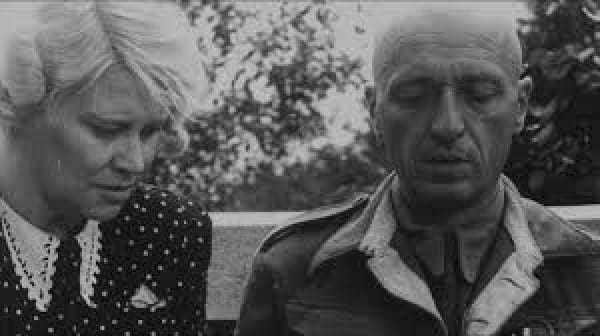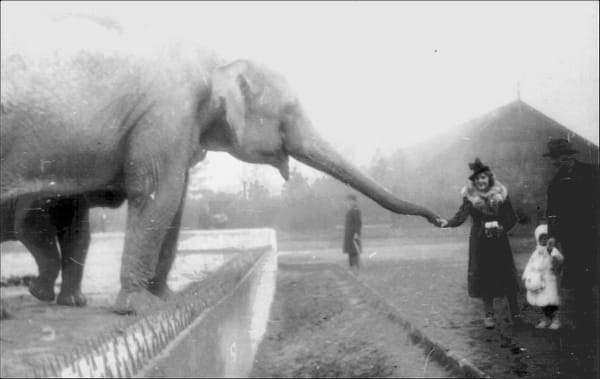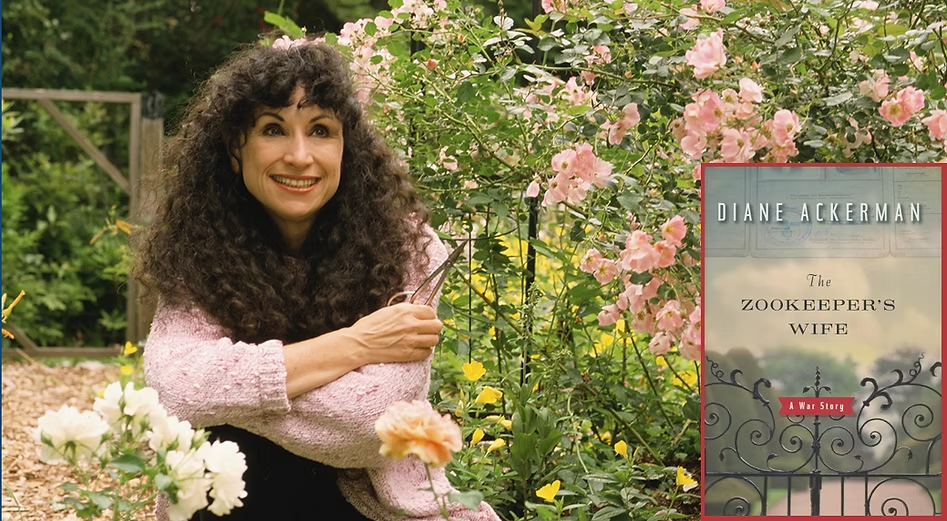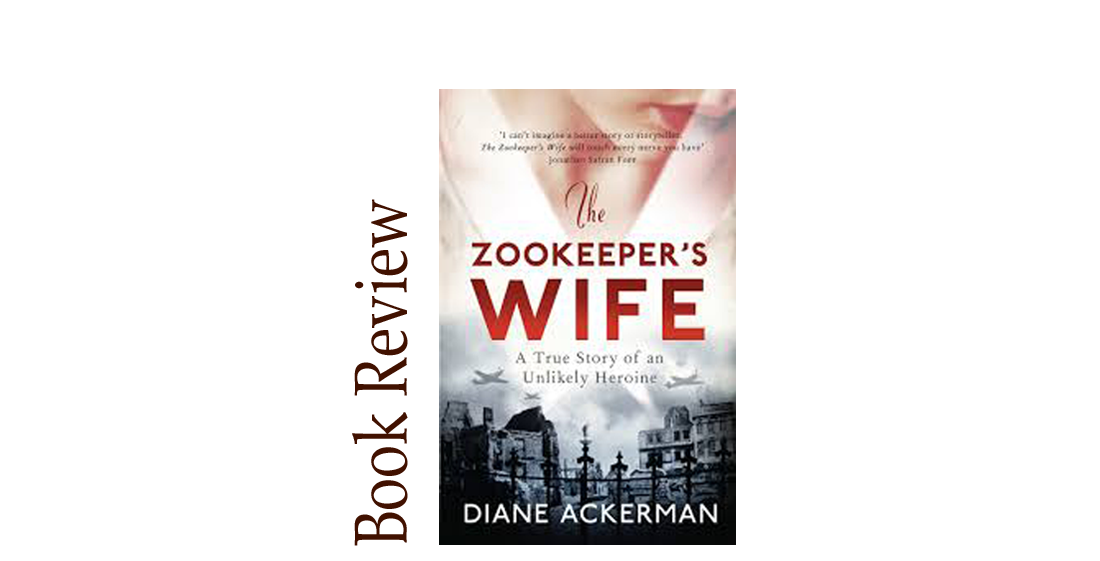- Date Published:
2007 - Length:
368 pages—Listening Time: 10 hrs, 55 minutes - Genre:
Biography, History, NonFiction, War Story - Setting:
Late 1930s - 1945, Poland, Warsaw Zoo, Warsaw Ghetto - Awards:
Orion Book Award Winner 2008; Sophie Brody Medal Honorable Mention 2008; Booklist Editor's Choice: Adult Books History 2007; New York Times Bestseller Nonfiction 2008 - Language:
English, Translated into 11 languages: Danish, Dutch, English, French, German, Italian, Latin, Norwegian (Bokmål), Polish, Spanish, Portuguese - Sensitive Aspects:
Graphic depictions of violence, Holocaust atrocities, ethnic bias - Movie:
2027 Movie: Scion Films The Zookeeper's Wife starring Jessica Chastain - Recommend for Book Club:
Yes, for groups that enjoy historical reads

Diane Ackerman's The Zookeeper's Wife presents a compelling biographical narrative of a Polish couple dedicated to rescuing Jews in the harrowing times leading up to and during World War II. The narrative follows Jan and Antonia Żabiński, who managed the Warsaw Zoo during that period. Their story is intriguing and worthy of praise, yet I found Ackerman's retelling of it lacking in impact.
Ackerman, a naturalist and a poet, is undoubtedly a talented writer. Her memoir, One Hundred Names for Love, was even a finalist for the 2012 Pulitzer Prize in General Nonfiction. However, in The Zookeeper's Wife, despite being a historical biography, the author failed to adequately portray the story and its key characters. The book jumped from topic to topic without effectively concluding any of them or integrating them into a cohesive main narrative.
For example, I'm not sure how the secretions from hyenas and the extensive descriptions of linden trees present on the zoo grounds have much to do with the overall story. Likewise, I was disappointed in Ackerman's development of the main characters, Antonia and Jan Żabiński. Undoubtedly, the pair were remarkable people who did extraordinary things, but there was no depth or insight into their personalities or inner motivations. I was confused about the guests sheltered at the zoo, the Żabiński kids' ages during the book's main events, and all of Jan's underground resistance activities. I felt like I knew the personality of the family's pet badger better than Antonia, who was supposedly the main biographical character of the book.
The narrative unfolds with intense drama and heroism, showcasing how everyday individuals rise to the occasion, performing remarkable feats amidst enormous peril and hardship. The story resonates with me on every level. However, I found the writing to be lacking. It presents information in a clear and direct manner, almost like news reporting. To be truthful, I had higher expectations from a poet. I understand that the subject matter is a work of nonfiction, but that shouldn't preclude the use of engaging and captivating writing.
Even with this concern, I found myself captivated by the narrative and once again amazed by the depths of human nature, both its ruthless nastiness as well as its kindness. I learned a lot about the world of zookeeping and the intricacies of exotic animal breeding. The story is truly remarkable and should be told; however, I found this retelling disappointing.

The Zookeeper's Wife is a non-fiction account by Diane Ackerman that tells the remarkable true story of Jan and Antonina Żabiński, the keepers of the Warsaw Zoo during World War II. When Nazi Germany invaded Poland in 1939, the zoo was bombed, and most of its animals were killed or taken away. Amid the devastation, the Żabińskis transformed their zoo into a sanctuary for hundreds of Jews fleeing Nazi persecution.

The uninhabited zoo cages and their onsite villa were used by the Żabińskis to hide Jews escaping the Warsaw Ghetto. They provided shelter, food, clothing, and forged documents, risking their lives daily to protect their guests from Nazi detection. Jan Żabiński was active in the Polish underground resistance, using the zoo as a base for clandestine operations. He buried ammunition in animal enclosures and coordinated with resistance networks, while Antonina maintained the household, providing comfort and stability for both human and animal inhabitants.
Antonina’s empathy and deep connection to animals shaped her approach to survival. She used her understanding of animal behavior to outwit Nazi officers and foster a sense of normalcy and hope within the zoo, even as war raged around them.
The book explores the moral ambiguities and dangers of wartime Poland, highlighting the courage, ingenuity, and compassion required to resist oppression. The Żabińskis’ actions saved hundreds of lives, making their story a testament to the power of human kindness.

The book draws from Antonina’s diaries and historical research, offering a unique perspective on the Holocaust by focusing on the intersection of war, nature, and humanity. The Zookeeper's Wife stands as an important addition to Holocaust literature, celebrating the extraordinary bravery of ordinary people who chose compassion over fear in the darkest of times.

The Zookeeper's Wife by Diane Ackerman is a fascinating story, worthy of your time. Here are some reasons you should read this book.
It Is a True Story of Courage and Compassion
The book tells the remarkable true story of Jan and Antonina Żabiński, keepers of the Warsaw Zoo, who saved over 300 Jews during World War II by hiding them in the zoo's animal enclosures after the Nazi invasion. It highlights extraordinary acts of bravery, compassion, and resistance in the face of one of history's darkest periods, offering a testament to the resilience of the human spirit.
It Offers a Unique Perspective on the Holocaust
Unlike many Holocaust narratives, The Zookeeper’s Wife explores the events through the lens of nature and the animal kingdom, blending the horrors of war with moments of beauty, empathy, and connection to the natural world. Antonina’s perspective as a naturalist provides a distinctive, hopeful counterpoint to the surrounding brutality, emphasizing the sustaining power of kindness and the importance of small joys even in dire circumstances.
It Has Poetic Writing and Thorough Research
Even though the writing style of this book did not work for me, it might for you. Ackerman is celebrated for her lyrical, sensuous prose and her ability to weave elaborate metaphors, making her stories both vivid and emotionally resonant.
The book is grounded in meticulous research, drawing from diaries, interviews, letters, and historical records to create an authentic narrative.
Human and Animal Relationships are Explored
The narrative examines the bonds between humans and animals, showing how these relationships can inspire empathy, courage, and creative survival strategies.
The Żabińskis’ love for animals parallels their compassion for the people they rescue, reinforcing themes of interconnectedness and moral responsibility.
Reading about the atrocities that happened during World War II is tough. Ackerman has been criticized that her account "sugarcoats" much of what happened in Warsaw during the war. I'm not sure I want to know everything, so I'm glad this version is a mild retelling.
If you have any interest in World War II history, this book is a must-read for you. The book serves as a brutal reminder of one of history's vilest moments and the inhumanity of man towards man. We often would like to forget that these things happened, but we shouldn't. This is why you should definitely read this book.


Get Diane Ackerman Books
Known as a naturalist and poet, Ackerman's books are profound and engaging.
Bookshop.org was created as a socially conscious alternative to Amazon, with the goal of helping local, independent bookstores thrive. This is why Readers With Wrinkles supports their efforts. Please join us in this effort by purchasing your next read here.

If you enjoyed The Zookeeper's Wife for its blend of World War II history, personal courage, and the intersection of humans and nature, there are several books you might find similarly compelling. These recommendations span both nonfiction and historical fiction, often focusing on resilience, survival, and untold stories from the war era.
Recommended Titles
- A Writer at War by Vasily Grossman: This book offers firsthand war correspondence from the Battle of Stalingrad and the Red Army's advance toward Berlin, providing a raw look at the realities of World War II and the Holocaust, much like Ackerman’s honest portrayal of wartime Warsaw.
- The Auschwitz Librarian by Antonio Iturbe: Based on the true story of Dita Kraus, a young girl who risked her life to keep the secret library at Auschwitz alive, this book highlights bravery and resilience under Nazi occupation, themes central to The Zookeeper's Wife.
- The Tower, The Zoo, and The Tortoise by Julia Stuart: While more whimsical, this novel centers around a unique zoo and its keepers, offering a lighter but still touching look at the connections between humans and animals.
- West with Giraffes by Lynda Rutledge: A historical novel inspired by true events, following a Depression-era journey transporting giraffes across America. It captures the spirit of unlikely heroism and the bonds between people and animals.
- Sheever's Journal, Diary of a Poison Master by K. Ritz: For those interested in personal accounts and diaries from the war era, this book provides a unique narrative perspective.
Other Notable Suggestions
- Follow the Stars Home by Diane C. McPhail: A story of a pioneering woman facing adversity, with a focus on courage and determination.
- A Natural History of the Senses by Diane Ackerman: For more of Ackerman’s signature blend of science, history, and lyrical prose, this book explores the wonders of human perception.


Comments